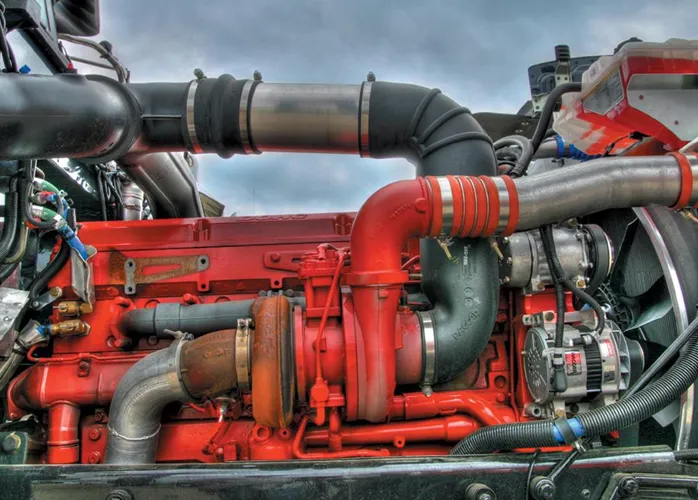Accidentally fueling a gasoline-powered vehicle with diesel is a serious mistake that can lead to significant engine damage. Understanding the differences between gasoline and diesel, their effects on engine components, and the necessary steps to mitigate potential harm can help vehicle owners address such situations effectively.
Understanding Gasoline and Diesel Fuels
Gasoline and diesel are both derived from crude oil but differ in their chemical composition, viscosity, and combustion properties. Gasoline is lighter and evaporates more quickly, designed for use in spark-ignited gasoline engines. In contrast, diesel is heavier, oilier, and has a higher energy density, intended for compression-ignited diesel engines. This fundamental difference is crucial when considering the impact of introducing diesel into a gasoline engine.
Immediate Effects on the Fuel System
Introducing diesel into a gasoline engine’s fuel system can cause several immediate issues:
Fuel Injector Clogging: Diesel’s higher viscosity can clog the smaller nozzles of gasoline fuel injectors, leading to improper fuel atomization and combustion. This blockage can result in engine misfires, reduced power, and stalling.
Fuel Line and Filter Obstruction: The thicker consistency of diesel can obstruct fuel lines and filters, impeding the flow of fuel to the engine. This obstruction may cause the engine to stall or fail to start.
Impact on Engine Components
Beyond the fuel delivery system, diesel contamination can affect other engine components:
Spark Plug Fouling: Diesel fuel does not ignite in gasoline engines as gasoline does. Its incomplete combustion can lead to carbon deposits on spark plugs, resulting in misfires, rough idling, and difficulty starting the engine.
Catalytic Converter Damage: Unburned diesel can reach the exhaust system and damage the catalytic converter, the component responsible for reducing emissions. This damage can lead to increased emissions and potential failure of the converter.
Potential Long-Term Damage
If diesel fuel circulates through the gasoline engine’s system, it can cause long-term damage:
Lubrication Issues: Diesel contamination can dilute engine oil, reducing its viscosity and compromising its lubricating properties. This dilution can lead to increased wear on engine components, overheating, and potential engine failure.
Fuel Pump and Injector Wear: Gasoline fuel pumps and injectors are not designed to handle diesel’s higher viscosity. Prolonged exposure can lead to damage, affecting fuel delivery and engine performance.
Immediate Actions to Mitigate Damage
If you realize that diesel has been added to your gasoline vehicle’s fuel tank, taking prompt action is essential:
Do Not Start the Engine: Starting the engine allows diesel to circulate through the fuel system, increasing the potential for damage.
Contact Professional Assistance: Reach out to a dealership or certified mechanic immediately. They can assess the situation and recommend appropriate steps, such as draining and flushing the fuel system.
Avoid Driving the Vehicle: Driving with diesel in the fuel system can exacerbate damage. It’s best to have the vehicle towed to a professional for inspection and repair.
Repair and Recovery
The extent of repairs depends on how much diesel was introduced and whether the engine was started:
Fuel System Flushing: Draining the contaminated fuel and flushing the fuel lines, filters, and injectors can remove diesel residues.
Component Inspection: Mechanics will inspect the fuel pump, injectors, and catalytic converter for damage. Replacements may be necessary if components are found to be compromised.
Cost Considerations: Repair costs can vary widely. For example, flushing the fuel lines may cost around $200, servicing fuel injectors about $250, and replacing a fuel pump could be $1,200 or more.
Preventive Measures
To prevent such incidents:
Be Vigilant at Fuel Stations: Ensure you’re using the correct fuel by checking pump labels and nozzle sizes. Diesel nozzles are typically larger and may have different colored handles.
Kbb.com
Stay Informed About Fuel Quality: Be aware of potential fuel mix-ups at stations. There have been instances where diesel was mistakenly delivered into gasoline storage tanks, leading to widespread vehicle issues.
Conclusion
Accidentally introducing diesel into a gasoline engine can lead to immediate and long-term damage, affecting components like fuel injectors, spark plugs, and the catalytic converter.
Taking swift action—such as avoiding starting the engine and seeking professional assistance—can mitigate potential harm. By understanding the risks and implementing preventive measures, vehicle owners can protect their engines from the adverse effects of fuel contamination.
Related Topics:

